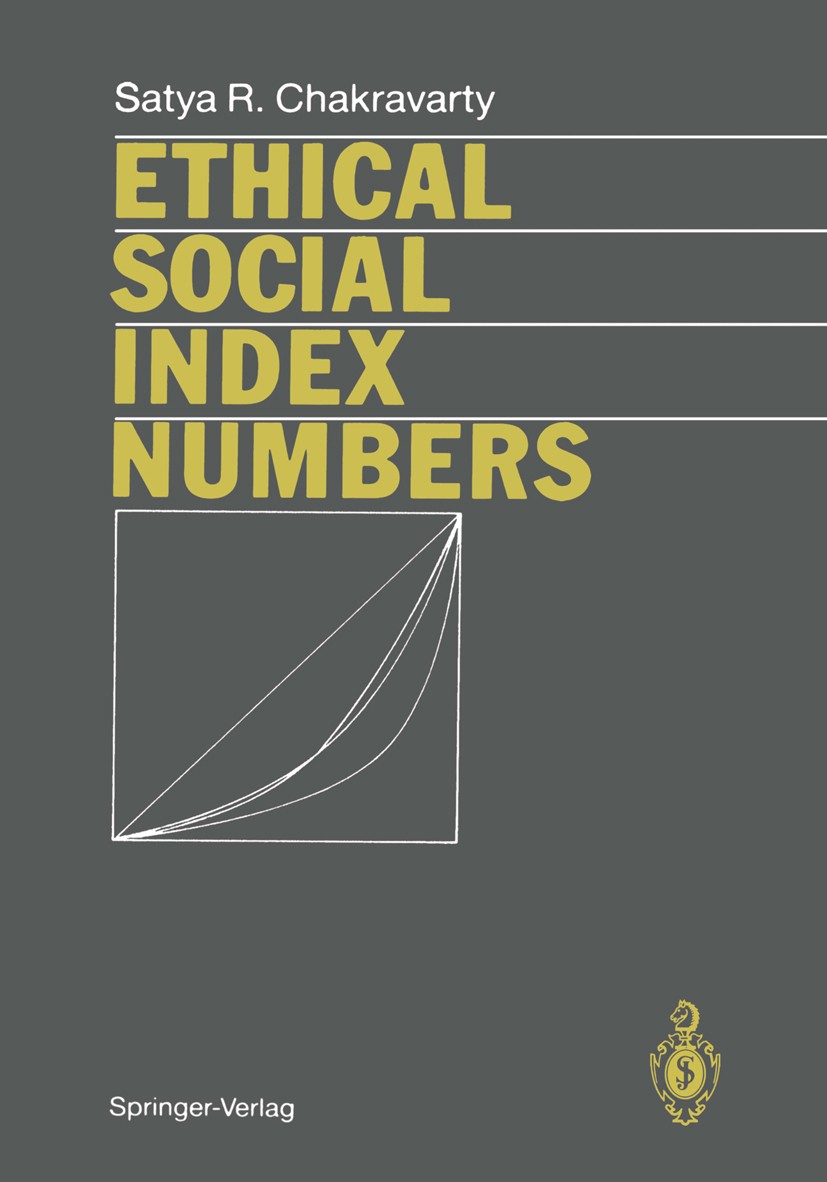| 書(shū)目名稱(chēng) | Ethical Social Index Numbers | | 編輯 | Satya R. Chakravarty | | 視頻video | http://file.papertrans.cn/316/315937/315937.mp4 | | 圖書(shū)封面 |  | | 描述 | In this book we are concerned with income profile based ethical social index numbers. An ethical index is designed from an explicit social evaluation function with a specific purpose in mind. For example, an ethical relative inequality index determines the fraction of total income that could be saved without any welfare loss if society distri- buted incomes equally. Ethical indices contrast with descriptive indices which are de- rived without using any concept of social welfare. Needless to say, ethical indices are not meant to supplant descriptive indices, rather they are constructed with different aims. We begin Chapter 1 with a formal discussion on the concept of a social evaluation function. In the main body of this chapter we consider the problem of ranking income profiles using a social evaluation function. In Chapter 2 we set about analyzing alter- native approaches to the measurement of inequality. In Chapter 3 we focus our attention on the Gini index, the most frequently used index of inequality, and its extensions. In Chapter 4 we formulate the notion of an ethical distance function that measures welfare of one population relative to another. Chapter 5 is devoted to quant | | 出版日期 | Book 1990 | | 關(guān)鍵詞 | Armut; Einkommensverteilung; Wohlfahrtstheorie; development; distribution; income distribution; inequality | | 版次 | 1 | | doi | https://doi.org/10.1007/978-3-642-75502-6 | | isbn_softcover | 978-3-642-75504-0 | | isbn_ebook | 978-3-642-75502-6 | | copyright | Springer-Verlag Berlin · Heidelberg 1990 |
The information of publication is updating

|
|
 |Archiver|手機(jī)版|小黑屋|
派博傳思國(guó)際
( 京公網(wǎng)安備110108008328)
GMT+8, 2025-10-24 04:33
|Archiver|手機(jī)版|小黑屋|
派博傳思國(guó)際
( 京公網(wǎng)安備110108008328)
GMT+8, 2025-10-24 04:33


